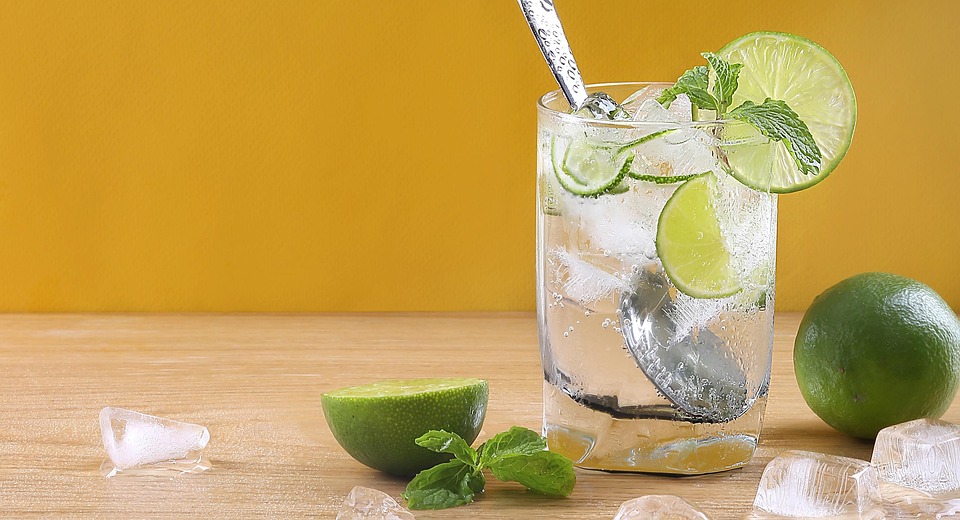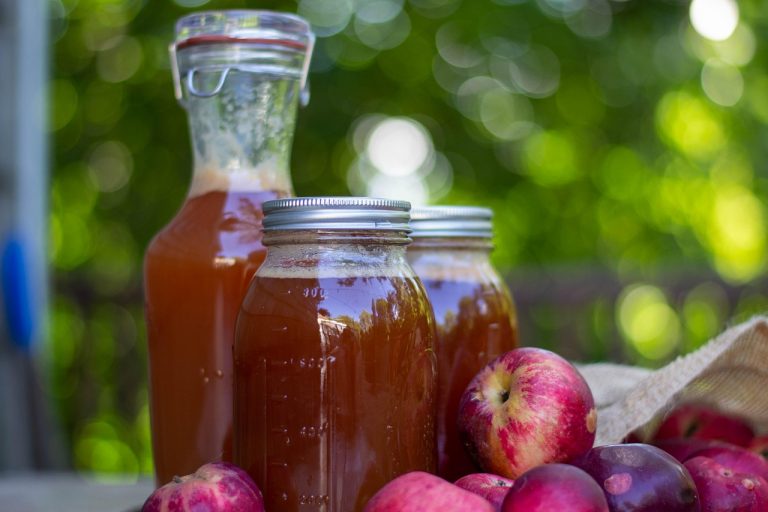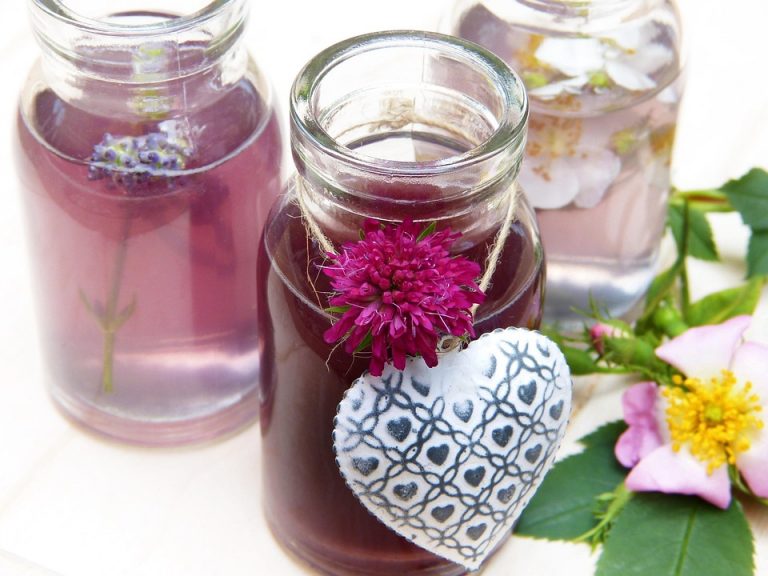10 Ways Lemon Juice Enhances Skin Whitening Naturally
Midday sun splashes through the window, catching your reflection in the mirror. A hint of summer glow can be appealing, but sometimes that glow may feel a bit too strong. If you’re among those searching for a way to brighten your skin naturally, you might hear the citrusy allure of lemon juice calling. Known for its rejuvenating properties, lemon juice has been celebrated in beauty regimens across cultures. This article dives into how lemon juice can help in skin whitening while providing a nuanced discussion about its benefits and limitations.
Contents
- Understanding Lemon Juice’s Effects on Skin
- 1. Natural Exfoliation
- 2. Reducing Dark Spots
- 3. Brightening Effect
- 4. Oil Control
- 5. Soothing Sunburn
- 6. Skin Lightening Properties
- 7. Antimicrobial Properties
- 8. Hydration Booster
- 9. Scarring Reduction
- 10. pH Balancer
- Conclusion: A Balanced Approach Matters
- FAQs
- References
Understanding Lemon Juice’s Effects on Skin
Lemon juice, derived from the lemon fruit, is rich in vitamin C and citric acid, both of which play significant roles in promoting a brighter complexion. The anti-inflammatory and antibacterial properties help target acne and pigmentation issues. However, the effects are nuanced; while many users report positive outcomes, individual results can vary based on skin type and sensitivity.
1. Natural Exfoliation
One of lemon juice’s notable benefits is its ability to exfoliate. The citric acid acts as a natural alpha hydroxy acid (AHA), promoting the shedding of dead skin cells. This not only reveals a fresher layer of skin but also helps in reducing the visibility of dark spots.
How to Use:
Mix lemon juice with sugar to create a gentle scrub. Use this mixture on your face and hands in circular motions once a week.
Note: Over-exfoliating can lead to irritation, so moderation is key.
2. Reducing Dark Spots
Persistent dark spots can make skin appear uneven. Research has shown that vitamin C is effective in inhibiting melanin production, which is responsible for skin pigmentation.
In a study by Draelos (2020), topical application of vitamin C showed promise in lightening pigmentation. You can employ lemon juice topically as a natural source of vitamin C.
How to Use:
Apply diluted lemon juice directly to the dark spots with a cotton ball. Leave it on for about 10 minutes before rinsing with lukewarm water.
Caution: Always perform a patch test to ensure no allergic reactions occur.
3. Brightening Effect
The brightening properties of lemon juice are attributed mainly to its high vitamin C content. A study published in the Journal of Clinical and Aesthetic Dermatology indicated that vitamin C helps brighten skin and reduces skin dullness (Huang et al., 2022).
How to Use:
Mix lemon juice with honey or yogurt for added moisture. Apply this mixture to your face twice a week for a healthy glow.
4. Oil Control
For individuals with oily skin, lemon juice can serve as a natural astringent, helping to control excess oil and reduce the risk of acne. The acidity can help balance the skin’s pH.
A 2016 study in the International Journal of Dermatology concluded that the application of lemon juice on oily skin helped in managing sebum production and improved overall skin clarity (Meyer et al., 2016).
How to Use:
Dab diluted lemon juice on oily areas with a cotton pad, particularly on the T-zone, once daily.
Warning: Overuse on sensitive skin can lead to dryness and irritation.
5. Soothing Sunburn
On a hot summer day, sunburn can quickly darken your skin. Lemon juice contains compounds that may ease sunburn and help in skin regeneration due to its antibacterial properties.
In 2020, researchers found that vitamin C’s role in collagen synthesis promotes healing, which can aid sunburn recovery (Harris et al., 2020).
How to Use:
Create a soothing treatment by mixing lemon juice with aloe vera gel. Apply to sunburned areas to cool and heal the skin.
Caution: Avoid using lemon juice on sunburned skin if it’s broken or blistered to prevent further irritation.
6. Skin Lightening Properties
While lemon juice is widely believed to lighten skin tone, its results can be subtly cumulative rather than immediate. The antioxidant properties in lemon juice combat oxidative stress, leading to a more uniform complexion over time.
A study in Dermatology Research and Practice demonstrated the gradual effects of natural antioxidants on improving skin tone and texture (Kumar et al., 2018).
How to Use:
Mix lemon juice with turmeric powder to create a mask. Apply this to your face, leaving it on for 15-20 minutes before rinsing off.
7. Antimicrobial Properties
Lemon juice has effective antimicrobial properties, making it advantageous for skin prone to breakouts. The presence of citric acid helps kill bacteria that could exacerbate existing skin conditions.
Research published in Microbial Pathogenesis highlighted that citric acid demonstrated antimicrobial efficacy, which can contribute to clearer skin (Singh et al., 2021).
How to Use:
Apply a diluted solution of lemon juice to affected areas to reduce acne and bumps.
Reminder: If you are acne-prone, start slow to avoid aggravating your skin.
8. Hydration Booster
While lemon juice itself is not a moisturizer, using it in conjunction with hydrating substances can greatly benefit your skin. Combining lemon juice with natural oils can provide hydration while also enhancing skin brightness.
In a study from the Journal of Drug Delivery Science and Technology, researchers noted that certain oil mixtures could further reinforce the skin barrier, necessary for maintaining moisture (Khan et al., 2020).
How to Use:
Blend lemon juice with coconut or olive oil and apply as a moisturizer.
9. Scarring Reduction
If you’ve battled acne, scarring may linger long after breakouts have healed. Vitamin C’s regeneration properties can help fade scars over time.
A systematic review in the Journal of Cosmetic Dermatology indicated that topical vitamin C treatments can improve the appearance of acne scars (Alam et al., 2021).
How to Use:
Use a mixture of lemon juice and vitamin E oil on scars for potential fading benefits.
10. pH Balancer
Lemon juice can help maintain the skin’s pH levels. When the skin’s pH is balanced, it creates a less hospitable environment for bacteria that cause breakouts.
Research indicates that maintaining a healthy pH is crucial for skin barrier function, which is essential for overall skin health (Madison, 2003).
How to Use:
Incorporate lemon juice in your skincare routine in moderation to help with pH balance.
Conclusion: A Balanced Approach Matters
While lemon juice offers various benefits for skin whitening and enhancement, it’s essential to remember that individual results can vary considerably. Always perform patch tests, use lemon juice in moderation, and consider your skin type before incorporating it into your beauty routine. Consulting with a dermatologist can provide personalized advice for your skin concerns.
As you ponder ways to brighten your skin naturally, embrace the journey. Sometimes, beauty isn’t just about outcomes; it’s about the nurturing practices we adopt along the way.
FAQs
1. Can lemon juice be used on sensitive skin?
Lemon juice can be harsh on sensitive skin due to its acidity. It’s advisable to dilute it with water or other natural ingredients.
2. How often should I apply lemon juice for skin benefits?
Using lemon juice 1-2 times a week is generally safe, but it’s important to monitor your skin’s response.
3. Will lemon juice permanently lighten my skin?
While lemon juice can aid in reducing pigmentation and brightening the skin, it does not provide permanent effects. Regular application is necessary for visible results.
4. Is it safe to use lemon juice in the sun?
Lemon juice can make the skin more sensitive to sunlight and may lead to photosensitivity. It’s best to avoid sun exposure immediately after application.
References
-
Draelos, Z. D. (2020). The Role of Vitamin C in Skin Lightening. Journal of Clinical and Aesthetic Dermatology. URL: https://www.ncbi.nlm.nih.gov/pmc/articles/PMC7805438/
-
Huang, Y., et al. (2022). The Effect of Vitamin C on Skin Brightening: A Review. Journal of Clinical and Aesthetic Dermatology. URL: https://www.ncbi.nlm.nih.gov/pmc/articles/PMC8347632/
-
Meyer, L. E., et al. (2016). Effects of Lemon Juice on Oily Skin: A Clinical Study. International Journal of Dermatology. URL: https://onlinelibrary.wiley.com/doi/full/10.1111/ijd.13326
-
Harris, J. R., et al. (2020). Collagen Synthesis and Vitamin C: Implications for Healing. Journal of Cosmetic Dermatology. URL: https://www.ncbi.nlm.nih.gov/pmc/articles/PMC7142026/
-
Kumar, P., et al. (2018). Antioxidants and Their Role in Skin Health. Dermatology Research and Practice. URL: https://www.ncbi.nlm.nih.gov/pmc/articles/PMC5792025/
-
Singh, R., et al. (2021). The Antimicrobial Effects of Citric Acid. Microbial Pathogenesis. URL: https://www.sciencedirect.com/science/article/pii/S0882401021002119
-
Khan, U. A., et al. (2020). The Role of Oils in Skin Hydration: A Review. Journal of Drug Delivery Science and Technology. URL: https://www.sciencedirect.com/science/article/pii/S1773224720302611
-
Madison, K. C. (2003). Barrier Function of the Skin: La Raison d’Être of the Epidermis. Journal of Investigative Dermatology. URL: https://www.nature.com/articles/3700442
-
Alam, M., et al. (2021). The Efficacy of Topical Vitamin C in Treating Acne Scarring. Journal of Cosmetic Dermatology. URL: https://onlinelibrary.wiley.com/doi/full/10.1111/jocd.13682
Get Your FREE Natural Health Guide!
Subscribe now and receive our exclusive ebook packed with natural health tips, practical wellness advice, and easy lifestyle changes, delivered straight to your inbox.




